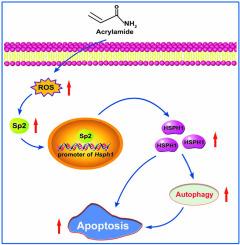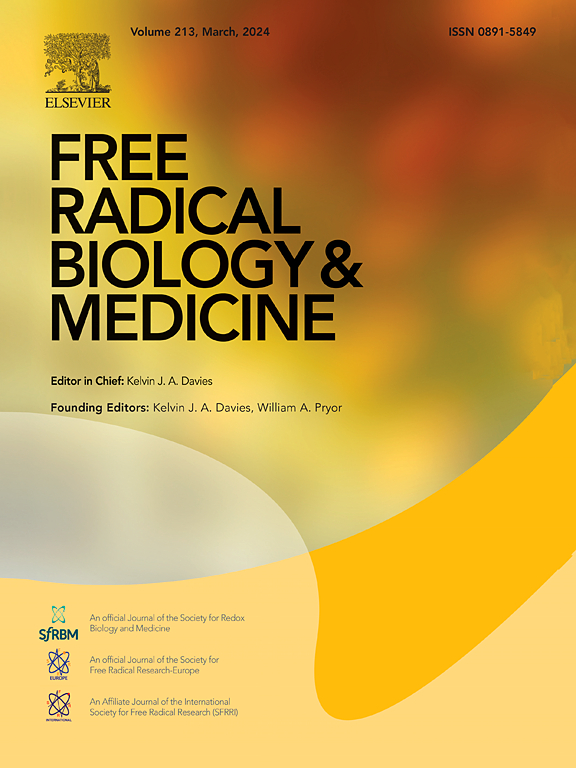HSPH1 is essential for acrylamide-induced apoptosis and autophagy of mouse spermatogonial stem cells
IF 8.2
2区 生物学
Q1 BIOCHEMISTRY & MOLECULAR BIOLOGY
引用次数: 0
Abstract
Acrylamide (ACR) is an organic compound widely used in daily life, and has been reported to cause damage to male reproductive system, while its role and mechanism in affecting the function of spermatogonial stem cells remains unknown. In this study, we showed that ACR induced apoptosis and autophagy of spermatogonial stem cell line (C18-4 cells), which was accompanied with upregulation of HSPH1. HSPH1 was subsequently shown to be involved in ACR-induced apoptosis and autophagy of C18-4 cells. In addition, Transcription factor Sp2 was identified to promote transcription of Hsph1 gene through binding to its gene promoter. Finally, Sp2/HSPH1 signaling pathway was proved to be involved in ACR-induced apoptosis and autophagy of C18-4 cells via inducing oxidative stress, and inhibition of autophagy significantly alleviated ACR-induced apoptosis. Taken together, our results demonstrate that ACR-triggered oxidative stress induces apoptosis and autophagy of mouse spermatogonial stem cells via activating Sp2/HSPH1 signaling pathway, and autophagy plays a cytotoxic role in ACR-induced apoptosis of the cells.

HSPH1在丙烯酰胺诱导的小鼠精原干细胞凋亡和自噬中起重要作用。
丙烯酰胺(Acrylamide, ACR)是一种广泛应用于日常生活中的有机化合物,已被报道对男性生殖系统造成损害,但其在影响精原干细胞功能中的作用和机制尚不清楚。在本研究中,我们发现ACR诱导精原干细胞(C18-4细胞)凋亡和自噬,并伴有HSPH1的上调。HSPH1随后被证明参与acr诱导的C18-4细胞凋亡和自噬。此外,发现转录因子Sp2通过与Hsph1基因启动子结合,促进Hsph1基因的转录。最后证明Sp2/HSPH1信号通路通过诱导氧化应激参与acr诱导的C18-4细胞凋亡和自噬,抑制自噬可显著减轻acr诱导的细胞凋亡。综上所述,我们的研究结果表明,acr触发的氧化应激通过激活Sp2/HSPH1信号通路诱导小鼠精原干细胞凋亡和自噬,自噬在acr诱导的细胞凋亡中发挥细胞毒性作用。
本文章由计算机程序翻译,如有差异,请以英文原文为准。
求助全文
约1分钟内获得全文
求助全文
来源期刊

Free Radical Biology and Medicine
医学-内分泌学与代谢
CiteScore
14.00
自引率
4.10%
发文量
850
审稿时长
22 days
期刊介绍:
Free Radical Biology and Medicine is a leading journal in the field of redox biology, which is the study of the role of reactive oxygen species (ROS) and other oxidizing agents in biological systems. The journal serves as a premier forum for publishing innovative and groundbreaking research that explores the redox biology of health and disease, covering a wide range of topics and disciplines. Free Radical Biology and Medicine also commissions Special Issues that highlight recent advances in both basic and clinical research, with a particular emphasis on the mechanisms underlying altered metabolism and redox signaling. These Special Issues aim to provide a focused platform for the latest research in the field, fostering collaboration and knowledge exchange among researchers and clinicians.
 求助内容:
求助内容: 应助结果提醒方式:
应助结果提醒方式:


